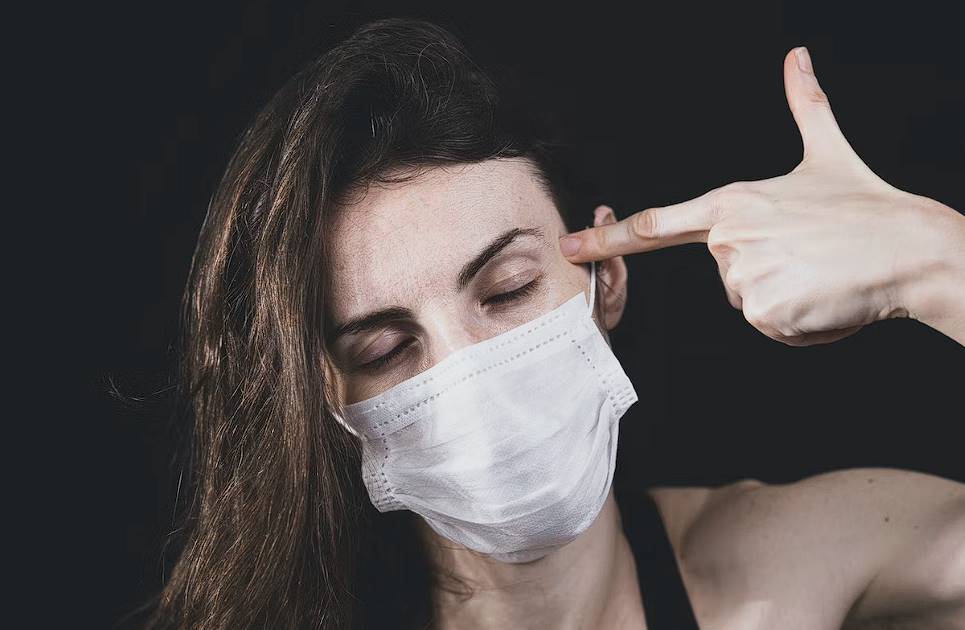Do you or a loved one have an addiction problem? Indicators of the need for medical attention must be recognised immediately. Subtle indicators of substance abuse that can be recognised and treated are frequently the key to recovering from addiction.
In this piece, we'll look at the most common warning signs of addiction and how they might lead you to a place of healing and regeneration.
Relapse after trying to cut back on drug use or stop using altogether. But these symptoms are just the start. In the next sections, we'll learn about real-life accounts of people who overcame addiction and the advice of prominent addiction doctors.
The ability to recognise these signals may be the difference between life and death or between stagnation and a profound change. Without further ado, let's dive into this illuminating investigation of the most common addiction rehab indications and discover light during addiction's darkness.
Remember that fighting addiction is a fight that no one should confront alone. Recovery is possible if the warning symptoms are recognised, and treatment is started promptly. Together, we can alter the narrative around addiction treatment and make a difference in our lives and those of others we care about.
The Nature Of Addiction And The Importance Of Treatment
Substance or behaviour addiction is a chronic, multifaceted illness characterised by continued use despite harmful effects. Addiction can encompass anything from drugs to cigarettes, gambling, online gaming, and shopping. The ripple effects of this disease extend well beyond the individuals who are personally afflicted.
The physical and mental health of an addict can deteriorate rapidly over time. It lowers one's quality of life by hindering one's ability to think clearly, have meaningful relationships, advance one's career, and so on. The stronghold that substances or behaviours have on the lives of those who are addicted makes it difficult for them to quit on their own.
Addiction is a major problem that strains society as a whole. It adds to the burden on healthcare systems, criminal justice, and social support systems. In addition, addiction can damage generations of a family and prolong a downward spiral into poverty.
Rehabilitative programmes for those struggling with substance abuse are essential in combating this widespread problem. Individuals can regain their life and rejoin society with the assistance of these programmes, which seek to help them overcome their addiction to substances or behaviours.
Providing a safe and orderly setting for recovering addicts is essential to rehabilitation. It provides a secure environment where individuals can investigate and deal with the issues that led to their addiction and study and practise the skills necessary for sobriety and long-term recovery.

Common Types Of Addiction
Physical and behavioural manifestations of addiction frequently occur together. There are hundreds of different types of addiction recognised by medicine and science, while alcohol and cigarette addiction are the most well-known.
Addiction can be diagnosed based on the following symptoms: inability to stop, cravings, compulsions, and dysfunctional lifestyle. Substances like alcohol and drugs aren't the only things that can cause addiction; behaviours can be just as harmful.
Physical Addictions
Most people are more familiar with addictions that involve their bodies. Substances that are taken orally or injected are the focus here. Among the most common types of physical addiction are:
- Alcohol
- Marijuana
- Tobacco
- Amphetamines
- Opioids
- Inhalants
- Prescription drugs
- Hallucinogens
- Cocaine
- PCP
Three main types of drug addiction affect the body: alcohol, illegal substances, and prescription medication. One of the most prevalent addictions is alcohol.
Alcohol dependence, episodes of binge drinking, and chronic heavy drinking are all symptoms. Many people who struggle with alcoholism report that drinking began as a social activity but quickly spiralled out of control.
Addiction to illegal drugs, which produces temporary changes in brain function and leads to a distorted view of reality, is known as illicit drug use disorder. Addiction is a terrible disease because of the long-lasting effects of illegal drugs on the brain and other organs.
Behavioural Addictions
If you lose control of your behaviour to partake in activities that temporarily make you happy, you may suffer from behavioural addiction. That person develops a constant need to engage in the behaviour that initially brought about the wonderful feelings. Some examples of widespread behavioural addictions are:
- Food Addiction
- Exercise
- Sex Addiction
- Shopping Addiction
- Internet Addiction
- Cutting
- Pornography Addiction
- Seeking pain
- Using computers and cell phones
- Spiritual obsession (not to be confused with religious devotion)
- Video Game Addiction
- Work Addiction
- Exercise Addiction
Gambling Addiction
People with problems in self-control are more likely to engage in compulsive actions that can quickly escalate into an addiction crisis. Substance abuse disorders and behavioural addictions share a common vulnerability: the aggravation of risk by mental health concerns or mental disorders.
There is a significant overlap between substance abuse and behavioural addiction. More than half of persons with a substance use disorder also use other drugs. Many people who struggle with substance misuse also develop behavioural addictions.
Substance abuse and behavioural addiction have many characteristics. The "high" or exhilaration one experiences due to using or behaving similarly, the building of tolerance leading to higher use or repeated behaviour, the feeling of helplessness or loss of control, and the onset of psychological and physical withdrawal symptoms are all commonalities.
Signs Of Addiction
You should first follow your gut. There's probably something to worry about. Like any other sickness, addiction has telltale indicators that can be recognised and used to diagnose the disorder.
Addiction is easily identifiable by increased drug or alcohol usage, especially if it occurs regularly or thrice daily. When drug usage becomes habitual, it might give the impression that the user requires the substance for everyday survival. You'll need to take a lot more of the medication to get the same high.
As their habit worsens, the person you care about may become preoccupied with getting their next fix. Relationship issues, difficulties at work or school, and even personality shifts may result from an inability to concentrate.
Dependence often has serious monetary consequences. It's often challenging for addicts to maintain employment. If your loved one needs money for drugs, they may resort to debt, begging, or theft. They may engage in risky behaviours like needle sharing or naked sex.
There are other bodily consequences of addiction. You may have observed that your friend or family member has drastically changed their weight or stopped caring about their appearance. Addiction can make a person more susceptible to physical ailments like headaches, nausea, and aches and pains. Alterations in one's mood, such as paranoia, despair, or worry, are other red flags that one may be addicted to.
Signs Of Addiction: Drug Use
- Poor coordination
- Increasing drug or alcohol use
- Changes in eating habits
- Denial about the extent of drinking or drug use
- Pale, flushed or puffy face
- A reliance or dependence on drugs or alcohol to function
- Nausea
- Despite negative outcomes, continuing to use drugs or alcohol.
- Slurred speech
- Signs of addiction: Physical changes
Signs Of Addiction: Changes In Behaviour
- Mood swings
- Drinking in the morning or secretly
- Depression
- Drinking alone
- Paranoia
- Drinking or using drugs to relax or improve getting to sleep
- Anxiety
- Missing organised events or activities
- Blackouts
- Avoiding friends and family
Depression and anxiety, in particular, frequently coexist with substance abuse. Substance misuse can be more likely in people with certain mental health issues, so it's important to watch for warning symptoms. People with mental health problems may try to treat their symptoms with substances like alcohol or narcotics.
Signs Of Addiction: Social Changes
- Inability to focus at work or school
- Money trouble
- Relationship problems or social isolation
- Missing work or school
Signs Of Addiction: Drug Paraphernalia
You may find objects that are commonly used for drug use. These can include:
- Miniature spoons – Often used in the process of making drugs injectable
- Needles – These are used for intravenous drug use, for example, injecting heroin
- Bongs – Typically used for taking Marijuana
- Pipes – These can be made from various materials, including glass, wood and plastic
- Cigarette papers – Used for smoking drugs
Addiction Treatment: What You Can Expect?
Recovering from an addiction can be hard but ultimately rewarding process. It's about getting to know oneself better, overcoming past hurts, and laying the groundwork for a healthier future. While everyone is different, here are some broad strokes of what to anticipate in drug and alcohol rehabilitation:
Intake and Assessment
A patient's addiction, medical history, and mental health status, among other criteria, will all be evaluated upon admission to a rehabilitation centre. The therapy staff uses the data to develop an individualised strategy for healing.
Detoxification
Detoxification is often the first stage in recovery for those physically dependent on drugs. Your body will naturally detoxify itself while under medical care. Although this step is necessary for your safety and well-being, it can be unpleasant.
Counselling and Therapy
Addiction treatment programmes often consist primarily of therapy. In private therapy, you can dig deeper into what led to your addiction, heal from past hurts, and prepare yourself for the future. Support, encouragement, and insight from people going through the same things as you are what you can expect from group therapy.
Education
Education about addiction, its physical and mental impacts, and the tenets of sobriety are common components of rehabilitation programmes. Individuals may take charge of their lives and make well-informed decisions once they have a firm grasp on the dynamics of addiction.
Dual Diagnosis Treatment
Addicts often have other mental health problems as well. Treatment for a dual diagnosis tackles both illnesses simultaneously because of their close relationship. It is essential for long-term rehabilitation that underlying mental health conditions be treated.
Life Skills Training
Life skills training is a common component of many rehabilitation programmes. Skills like stress management, communication methods, and time management might help in readjustment after a period of absence.

Holistic Therapies
Meditation, Yoga, art therapy, and even equine therapy are some of the holistic treatments some rehabilitation facilities use. These pursuits relieve stress, foster personal growth, and mend broken hearts.
Support Network Building
Rehab allows you to meet other people going through the same process as you. Maintaining sobriety after leaving a rehabilitation centre requires establishing a solid support network.
Aftercare Planning
The treatment staff will work with you to develop an aftercare strategy as your time in rehabilitation draws to a close. This strategy lays out the help and tools you'll have access to even after you leave the rehabilitation centre.
Relapse Prevention
Potential relapse triggers and strategies for dealing with them will be discussed. Your chances of remaining sober are greatly improved by being aware of potential risks and prepared to deal with them.
Continuing Care
Many treatment facilities acknowledge ongoing recovery by providing alums or continuing care programmes. Support, counselling, and opportunities to maintain relationships with other people in recovery are all available through these programmes.
Conclusion
Addiction is a long-term, complex illness that causes people to keep using even though it hurts them. It can include things like drugs, cigarettes, gambling, online games, and shopping.
A drug addict's physical and mental health can get worse quickly over time, which can hurt their quality of life, relationships, and ability to move up in their job. Addiction is a big problem that puts a lot of stress on society. It makes healthcare, criminal justice, and social support services work harder than they need to.
Rehabilitative programs are important for fighting drug abuse and helping people get their lives back so they can rejoin society. These programs give recovering users a safe place to look into and deal with the problems that led to their addiction, as well as a place to learn and practice the skills they will need for sobriety and long-term recovery.
Physical addiction happens when someone takes drugs by mouth or injects them, and behavioural addiction happens when someone loses control of their behaviour to do things that briefly make them happy.
Substance abuse disorders and behavioral addictions are both at risk when mental health problems or mental illnesses make things worse. More than half of the people who have a substance use problem also use other drugs, and many of the people who have trouble with drug abuse also get hooked on other things.
Some things that both substance abuse and behavioural addiction have in common are the "high" or excitement that comes from using or acting in the same way, the building of tolerance that leads to more use or repeating the same behaviour, a feeling of helplessness or loss of control, and the start of mental and physical withdrawal symptoms.
If you notice these warning signs and start treatment right away, you can get to a place where you can heal and get better.
Addiction is a disease that is marked by more drug or alcohol use. It is often followed by poor coordination, changes in eating habits, and trouble concentrating. It can cause problems in relationships, problems at work or school, and changes in who you are as a person. Addiction can also cause major financial problems, like making it hard to keep a job or doing risky things like sharing needles or having sex while naked.
Drug use, poor coordination, changes in eating habits, denial about drug use, pale or puffy faces, dependence on drugs or alcohol, nausea, slurred speech, physical changes, mood swings, sadness, paranoia, anxiety, blackouts, and social isolation are all signs of addiction. Depression and worry are often present in people who use drugs, so it is important to look out for warning signs.
Getting over an addiction can be a hard but worthwhile process. Most recovery programs include admission and assessment, detox, counselling and therapy, education, treatment for dual diagnoses, training in life skills, holistic therapies, building a support network, planning for aftercare, preventing relapse, and continuing care.
These groups offer help, counselling, and chances to keep getting better. It is important to know what could cause a return and be ready to deal with it.
Content Summary
- Recognise the signs of addiction early on for prompt treatment.
- Substance abuse indicators can lead to recovery.
- Overcoming addiction requires recognising warning signs.
- Stories of triumph over addiction inspire hope.
- Prominent addiction doctors offer valuable advice.
- Identifying signals can be a matter of life and death.
- Addiction can lead to stagnation or profound change.
- Shedding light on common addiction rehab signs.
- Recovery is achievable with timely treatment.
- Addiction affects physical and mental health.
- Quality of life deteriorates due to addiction.
- Addiction hinders relationships and career progress.
- Rehab programmes aid in overcoming addiction.
- Safe environment is crucial for addiction recovery.
- Various types of addiction include substance and behaviour.
- Alcohol and cigarette addiction are prevalent.
- Addiction goes beyond individual impact.
- Addiction strains healthcare and social systems.
- Rehab programmes help regain life after addiction.
- A safe environment fosters addiction recovery.
- Addiction leads to compulsive behaviours.
- Substance and behavioural addictions share traits.
- Co-occurrence of substance and behavioural addiction.
- Overlapping characteristics of addiction types.
- Gut feelings can indicate addiction.
- Increased drug or alcohol use is a red flag.
- Habitual drug use impacts daily life.
- Dependency on substances affects relationships.
- Monetary issues often accompany addiction.
- Physical changes accompany addiction.
- Mood swings and behaviour shifts signal addiction.
- Mental health concerns often coexist with addiction.
- Addiction affects focus, finances, and relationships.
- Paraphernalia can indicate drug use.
- Recovery involves self-discovery and healing.
- Rehab assesses addiction, medical history, and mental health.
- Detoxification is the initial recovery stage.
- Therapy delves into addiction's root causes.
- Group therapy offers support and insight.
- Education on addiction and its impacts.
- Dual diagnosis tackles addiction and mental health.
- Life skills training aids in post-rehab life.
- Holistic therapies promote healing and growth.
- Building a support network is crucial.
- Aftercare planning ensures ongoing support.
- Relapse prevention strategies are discussed.
- Continuing care programmes sustain recovery.
- Addiction rehab leads to a healthier future.
- Overcoming addiction requires multifaceted treatment.
- Rehabilitation provides tools for long-term sobriety.
Frequently Asked Questions
Addiction rehab signs often include increased tolerance, withdrawal symptoms, neglecting responsibilities, and unsuccessful attempts to quit. Individuals may also experience changes in behavior, social isolation, and a preoccupation with obtaining the substance or engaging in the addictive behavior.
If you notice significant changes in their behavior, frequent mood swings, neglect of personal hygiene, financial problems, and loss of interest in activities they once enjoyed, these could be indications of addiction. Encouraging open communication and seeking professional help can be crucial steps in determining if rehab is necessary.
Rehab centers commonly treat various addictions, including alcohol, drugs (both prescription and illicit), gambling, and internet addiction. They may also address behavioral addictions such as sex addiction, gaming addiction, and eating disorders.
Yes, addiction rehab can significantly help individuals recover. Through a combination of therapies, counseling, support groups, and medical assistance, rehab centers provide a structured environment for overcoming addiction, addressing underlying issues, and developing coping strategies for long-term recovery.
The duration of addiction rehab treatment can vary depending on individual needs and the severity of the addiction. It may range from a few weeks to several months. Long-term programs often have higher success rates, as they provide more comprehensive support and allow for better adjustment to a substance-free lifestyle.




















